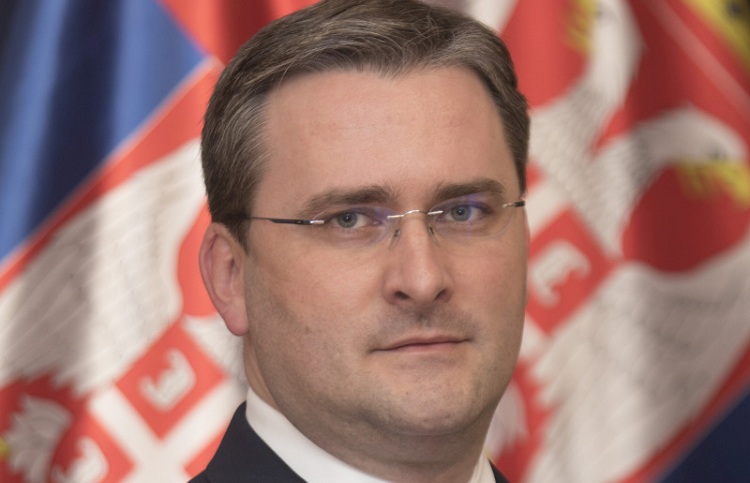Eduardo González
The Minister of Foreign Affairs, Arancha González Laya, will receive today in Madrid her Serbian counterpart, Nikola Selakovic, to whom she will convey Spain’s position in favor of the resumption of talks for the normalization of relations with Kosovo.
González Laya and Selakovic will meet this noon in the ministerial headquarters of the Palacio de Viana, in Madrid, after which they will offer a joint press conference. During the meeting, according to Foreign Ministry sources, the two ministers will review bilateral relations in the political, economic and cultural fields and will address the situation in the Western Balkans, the Eastern Mediterranean, Latin America and Africa.
During the meeting, the Minister will convey to her Serbian counterpart Spain’s support for the enlargement of the EU in the Western Balkans, a process in which Serbia is “one of the best placed countries”, according to the aforementioned sources, and will emphasize the need for the resumption of negotiations between Belgrade and Pristina for the normalization of relations between Serbia and Kosovo.
Regarding this point, Gonzalez Laya will convey to Selakovic that for Spain it is “fundamental” that an agreement be reached between Serbia and Kosovo and that bilateral talks be resumed and deepened in this regard, since it is an “important precondition for any further talks on Serbian membership in the EU”. In any case, Spain will insist on its position against “unilateral independence processes” within the EU, both in member states and candidates.
Kosovo unilaterally proclaimed its independence from Serbia on February 17, 2008, but the new state has not been recognized by Serbia nor by many countries, such as Spain (as well as Greece, Cyprus, Slovakia and Romania, within the EU). This fact has helped to considerably improve relations between Madrid and Belgrade, which has repeatedly thanked Spain for being the only “big country” in the EU that has not recognized the independence of its former province.
In 2011, Serbia’s leaders began negotiations for the normalization of relations with Kosovo, thanks to mediation from Brussels and in the context of Serbian aspirations to join the EU. However, the dialogue was completely blocked between 2018 and 2019 following the Kosovo authorities’ decision to impose high tariffs on goods from Serbia in retaliation for Belgrade’s strategy of boycotting Pristina’s attempts to join international bodies.
Serbia is aware that the lack of an agreement with Kosovo harms its aspirations to join the European Union and is therefore trying to find a formula acceptable to it. For its part, Kosovo knows that without an agreement with Serbia it will not be able to approach the EU or join the UN. For these reasons, the two sides resumed dialogue in Brussels in July 2020 for the first time since the end of 2018 and in September of the same year, the President of Serbia, Aleksandar Vucic, and the then Prime Minister of Kosovo, Avdullah Hoti (more open to dialogue than his predecessors), signed an economic rapprochement agreement at the White House that was highly praised by the Spanish government, which expressed its wish that “this important step contributes to a full normalization of relations” between the two parties and “strengthens regional security and stability”.
However, the victory of the more intransigent Albin Kurti in the Kosovar elections last February interrupted this timid rapprochement. The European Union’s High Representative for Foreign Policy, Josep Borrell, very recently called on Serbia and Kosovo to resume dialogue soon and proposed a date of May 11 for the resumption of the process, but Albin Kurti subsequently announced that he would not resume dialogue with Serbia before the end of June. In response, Borrell insisted on the need to resume talks “without delay” and to build on the progress made by the previous Kosovar government, which throughout 2020 held several rounds of talks after 20 months without contacts.







